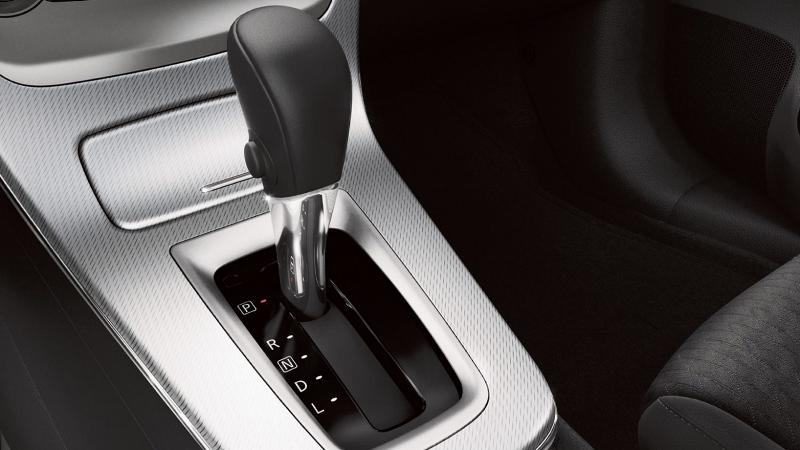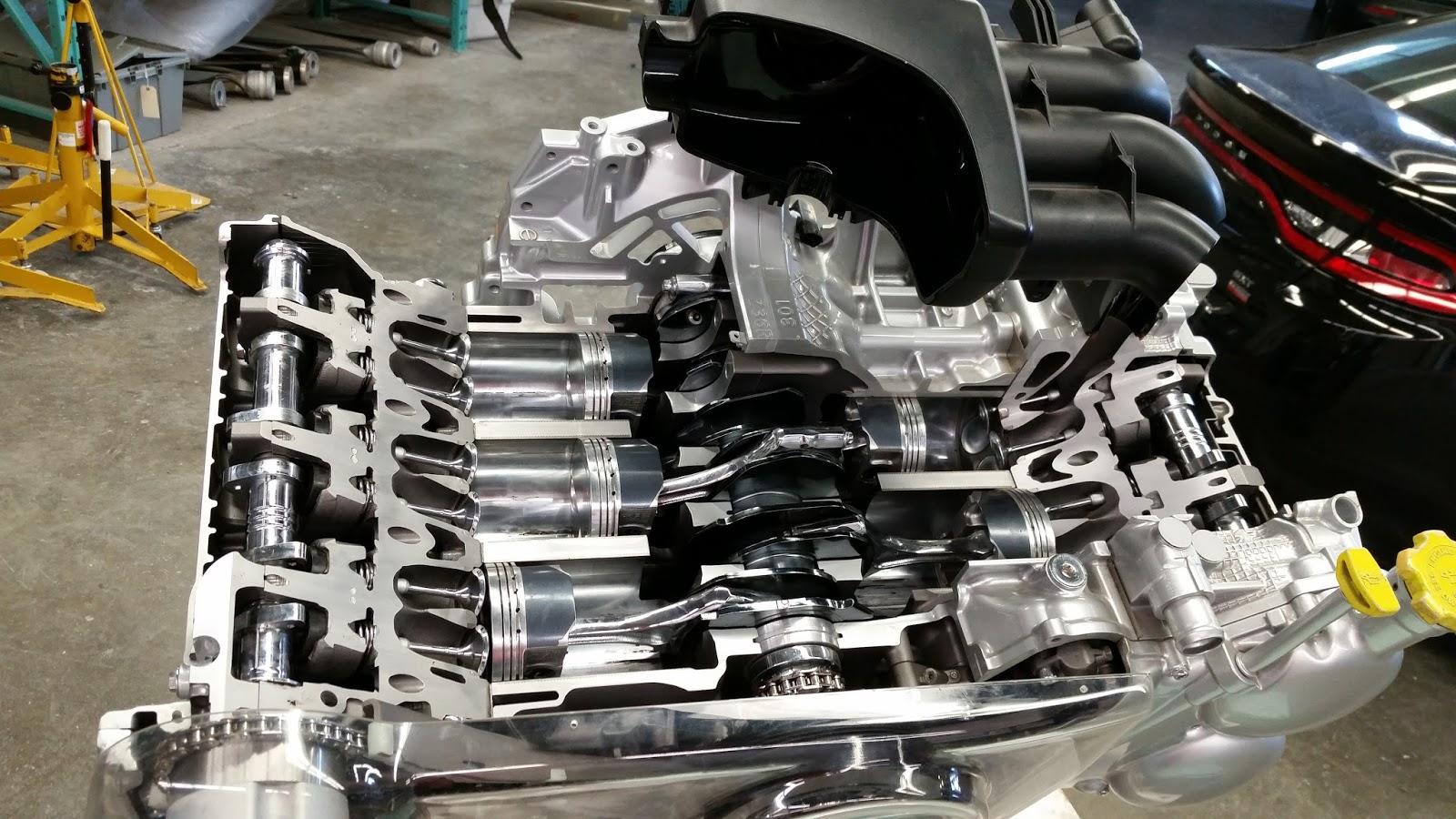Grinding Noise When Turning: Possible Causes and Solutions
Cars have their language, and just like a baby who cries to tell you the diaper needs changing, a car gives plenty of signals whenever there is something wrong inside its large body. One noticeable type of signal is strange noises, such as grinding noise when turning the steering wheel.
The steering wheel can produce as many as 10 kinds of weird noises, each pointing to a different problem in itself or elsewhere. Fortunately, this problem can be easily dealt with. Read on to find out what your car is trying to tell you and how to bring it back to its top condition.
Grinding Noise When Turning: Probable Causes
After consulting several mechanic experts about the key reasons behind grinding noise in a car, you will notice that every car model has its unique problem.
Considering that every car model is unique and so is the problem, it is difficult to guarantee the absolute cause of the car. But, here is the list of the top three most likely causes of grinding noises.
1. Poor Wheel Bearings
If you are driving your car and it makes a noise when turning and it sounds like grinding, poor wheel bearings can be the cause behind it. Bearings act like a buffer between an axle and the wheel.
Due to this, they prevent friction between the two moving parts. Therefore, the worn-out wheel bearings lead to friction that causes the grinding sound when turning as the car bends.
The same noise persists when the car accelerates. So, the way out to stop the noise is simple – change the bearings.
SEE MORE:
2. Problems Related to CV Joint
It’s a less-known fact that problems in the CV joint may cause a grinding noise when turning. The CV joint is a part of the drive shaft, which acts a key role when turning.
The problem in the CV joint can be major or minor, but all you need is to check out the axle to find out the issue as soon as possible.
3. The Issue with the Brakes
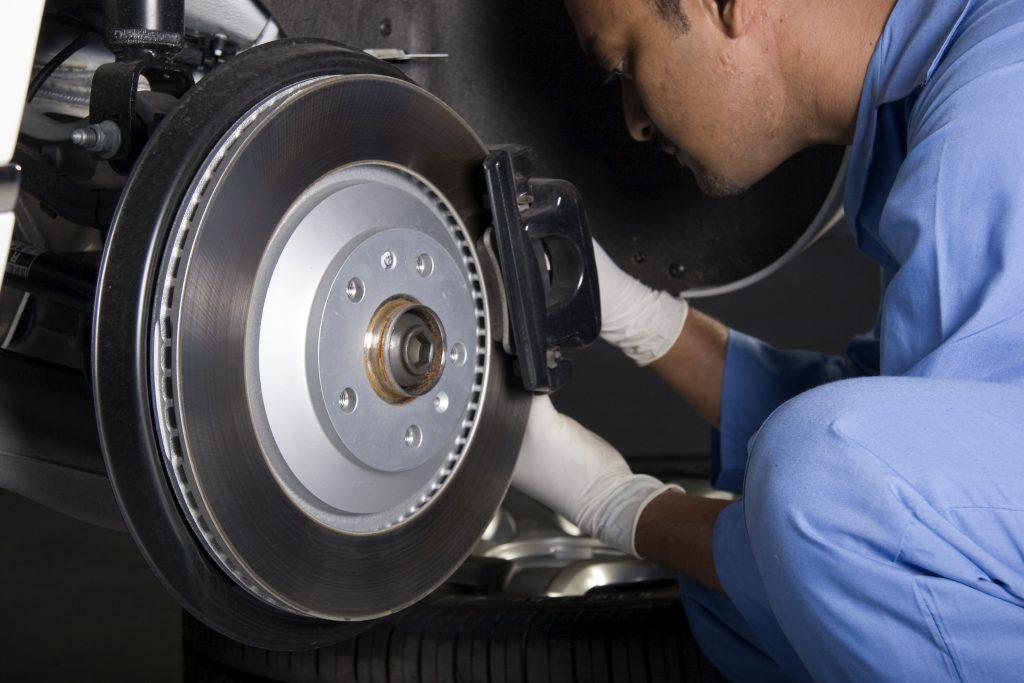
Another important source of the weird grinding sound can be a problem with the brake assembly. The key issues are a loose brake shield, worn-out brake caliper, and pads, or rotor misalignment. In any case, the best way is to check the entire brake system.
Noise from any part indicates friction that rips any car apart. Hence, it is essential to figure out the issue as soon as possible.
Grinding Noise When Turning: 10 Types To Note
Below are 10 grinding noise types you can encounter when turning.
1. Sounds like the wind whistling
When you start the car and hear the sound of the wind blowing from the engine, the engine’s cooling system or the vacuum tube of the engine may be leaking. This phenomenon can cause the engine to overheat and make the car more fuel efficient.
2. Sounds like a metal collision
When you drive and do not have any collisions, the car does not go through the pits but hears the sound like the collision of the metal plate together, which means, in some parts, the car is in trouble.
This may be due to the deterioration of the joints, the wear and tear of the steering wheel, or the problems with the chassis or suspension system. In addition, the liquid outlet is also one of the causes of this noise.
3. Sounds like animals scream
On a normal day and you get the car to work and when you start up, you suddenly hear the “frightening” sound like some animals call when punctured, it could be due to the rubber strap worn out or not also ensuring the tension.
The cost to “turn off” this noise of the engine is quite cheap so you do not hesitate to bring the car out to repair.
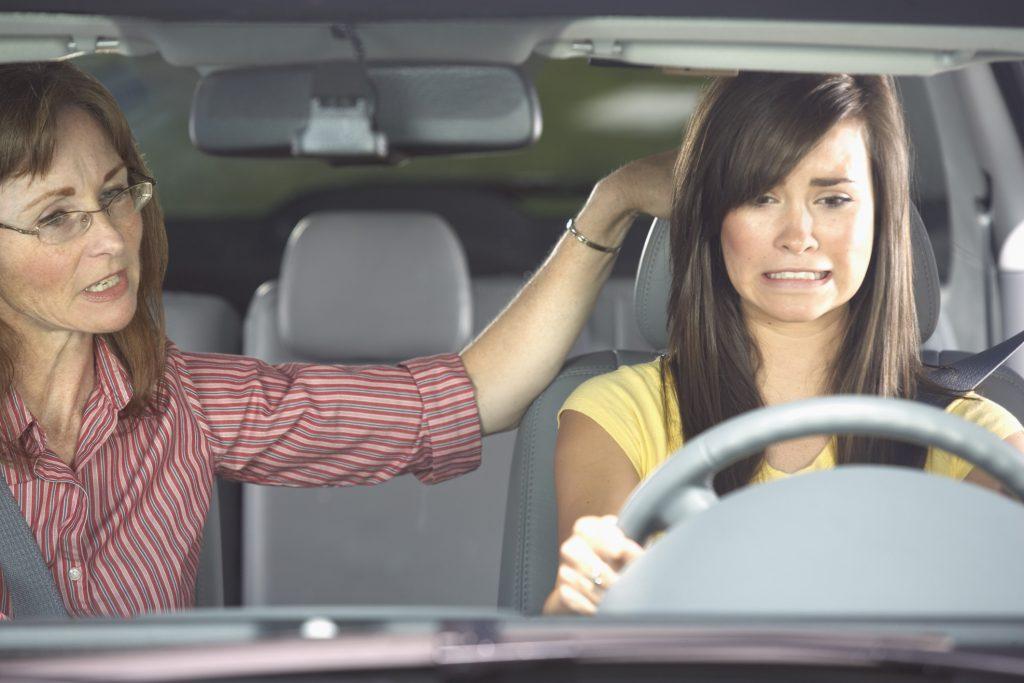
4. Sounds like hissing or moaning from the throat
This is a sign of the problem happening with the brake system of the car. There are many types of brakes made up of small metal plates rubbed into the rotor.
When the metal plates wear out to a certain degree, the friction of the brake system on the rotor causes a strange sound.
5. Repeat noises
Is your car equipped with a front-wheel-drive system and when traveling at a slow speed, it emits a repetitive rattle? This is a warning sign of problems occurring in the coupling of the transmission.
If the sound comes from the rear of the car, it may be because the rear of the car is having problems.
6. Sounds like a growl or moan
If the car sounds like a lion roars, the power steering is likely having problems. New models, including trucks and cars, are equipped with steering wheel electric power to replace the hydraulic auxiliary system as before.
However, after only a few years of use, this power system begins to show signs of recession. When it detects these sounds, it is best to take your car for maintenance, if it lasts too long, it will be difficult to turn the steering wheel, and cause danger.
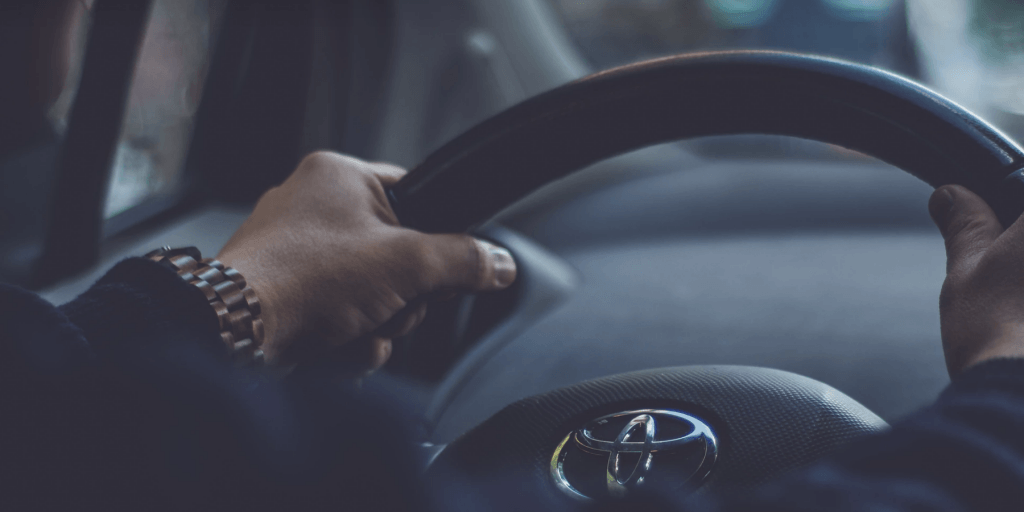
7. Sounds like the hammer knocked out under the car’s head
This is a sign that the ignition system is experiencing abnormalities, possibly early ignition. This phenomenon usually occurs when you accelerate or start the engine startup. It is very harmful because it can damage the piston system.
To overcome this, you can use higher-octane gasoline, which helps to delay the ignition timing and the non-carbonation process in the combustion chamber.
8. Sounds like a knock on the door
When the engine emits a “coke” like a door knock, it may be a system to raise fuel pumps that can’t push fuel or pump valves that have gaps that need to be adjusted.
9. The crunching sound comes from the gearbox
Is your vehicle equipped with a gearbox, when starting to sound crunching while the gearbox is still active? It can be a sign of many different problems: it may be because the clutch is in trouble.
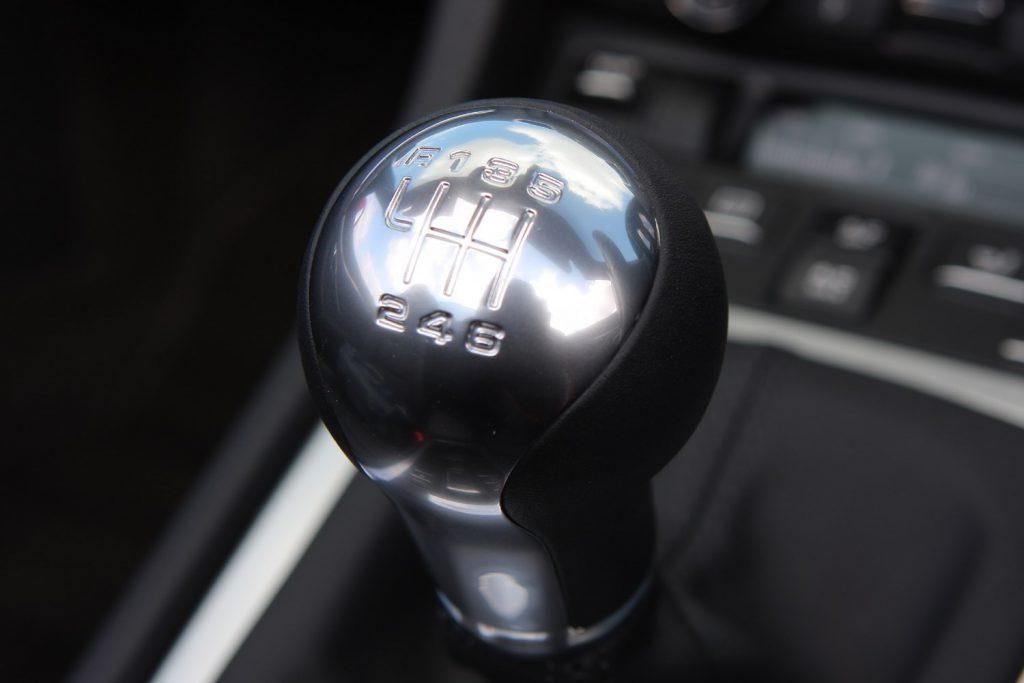
10. Sounds like a baby crying
If your car uses a rear-wheel-drive system and emits this sound from behind when you are accelerating or decelerating, then the gears are worn or the bearings are damaged.
Solutions For Grinding Noise When Turning
1. The method of preventing noise at the source
The method of preventing noise at the source is the first solution for grinding noise when turning, it consists of isolating it before entering the cabin and reducing the frequency of oscillation.
Sound insulation at the source is said to be the most effective method. However, it is not always possible. For example, the tires are uncomfortable when riding on rugged roads.
The different tires will have different noise levels. So, the same car, but the tire is louder than the tire. Almost all manufacturers provide noise on their tires.
2. Use of soundproofing materials
This method is also known as noise isolation and is performed mainly on metal parts. If the car makes grinding noise when turning, you should use this method.
The rubber between the suspension and the body of the car can prevent noise. The plastic between the two metal parts also performs a sound reduction function.
Operators often use this method to oscillate the engine without entering the cabin. Adding sponges to the metal shaft not only increases structural strength and prevents the material from vibrating.
The metal plate on the body is attenuated by attaching the ma-tiz or the flexible soundproofing panels inside. To optimize soundproofing, engineers can use a large set of built-in speakers.
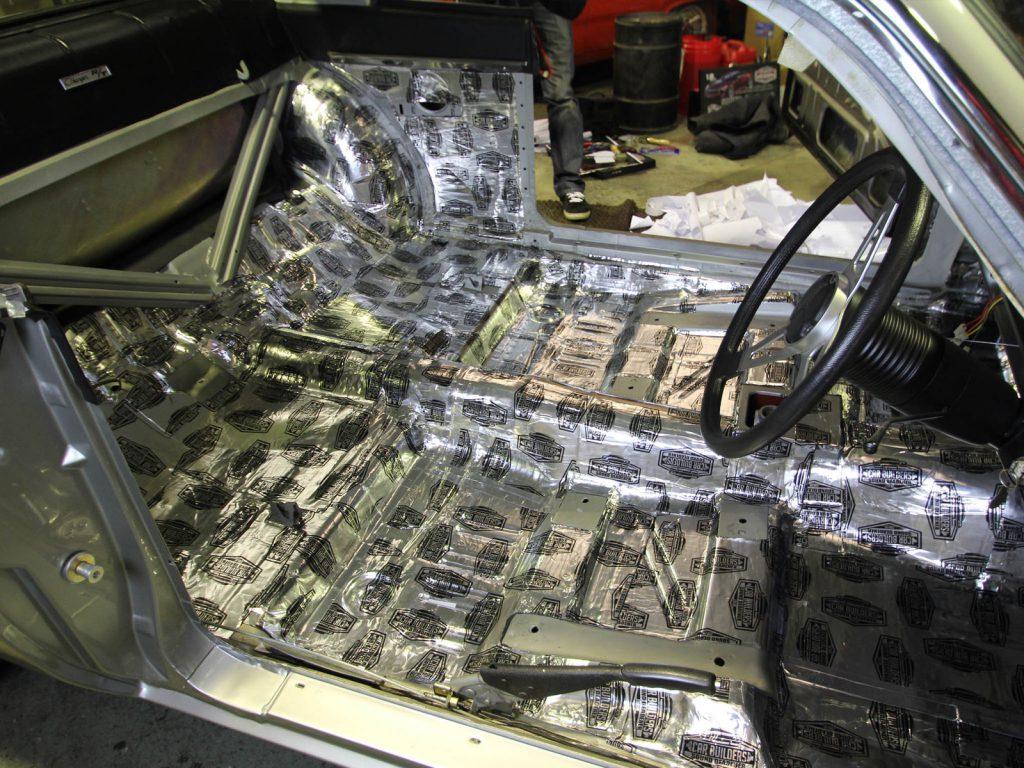
They turn the volume at different levels. When the tire vibrates, a laser scanner determines which position vibrates the most. Engineers only need to add sound insulation material to the area.
The use of sound insulation is simple, but the weight of the car increased, increasing fuel consumption. So, how much to add should be carefully calculated, to achieve both requirements in the best way.
3. Change the negative frequency
The negative frequency change is the third way that carriers use, especially for cabinets. Human ears often do not hear sounds that are too high or too low. So the negative frequency of these two can cause passengers not to hear anything.
The method used is to increase the hardness or increase the weight of the equipment. Then the frequency of the oscillation will change.
Frequently Asked Questions (FAQs)
Besides all the information about the grinding noise when turning above, we also collect some frequently asked questions about this situation to make it clear.
All of the questions just focus on one thing: their car grinds when turning, and they want to ask for any solutions to solve the problem.
1. “Can you guys advise me about this problem?”
“In my car in the morning when starting the engine is often very noisy and has a light vibration. I often have to run for a long time until the engine is hot enough so the phenomenon is reduced.
Of course, I understand when starting, the engine will be gas compensated so it turns a little bit faster, but the problem is that the car is noisy and vibrates abnormally, standing beside and listening to the fence is almost like sitting in an airplane.
Some people told me to replace the tripod, but when I put it into the firm as well as the garage, they all answered the tripod is not starred.
If anyone has ever been in this situation like me? And if so, how do you handle it?”
So here are some answers that can relate to the question. Following the described problem, we guess your car has some highlighted issues:
- There was a gap in the size of the su-pap
- The lubricant for the su-pap meets a problem, which may be due to oil narrowing, the oil pump being weak or the oil being too condensed.
- It can be caused by ignition, or by gas or wind, which is one of the causes of this condition. Take a look at your round machine whether it is steady or not.
- The rubber legs may be aging, and losing elasticity while the machine is cold, but not broken or deformed.

The quickest way is to check the oil level, and oil viscosity of the machine. The faster you change, the less you meet this problem.
Also in the garage, you ask the mechanic to open the lid of the check valve, then start the machine to check the oil on the stalk. It is necessary to change the oil suitable machine.
Your car is a complex machine with countless parts working in perfect harmony. Even a small damage somewhere can greatly affect how a car runs, or whether it runs at all. When you detect any abnormalities, such as grinding noises when turning, troubleshoot right away.
2. How long can wheel bearings last when they start to make noise?
If you discover any indicators of a failing wheel bearing, don’t drive more than 500 miles with it. Damaged wheel bearings will make driving more difficult. However, with a high-quality wheel bearing, you may drive an additional 1000 miles.
3. How much does it cost to fix grinding sound when turning?
Here are some recommended services you can get when your car makes any grinding noise when turning. You can take them as references since the actual cost will depend on a lot of factors, including your vehicle type and the severity of detected problems.
| Car Services | Cost |
| Power steering fluid changing | $20 – $120 |
| Poor wheel bearings replacement | $120 – $600 |
| Bent axle or CV joint replacement | $220 – $1000 |
| Brakes issues, steering system, suspension check-up/repair | $90 – $1000 |
So overall, depending on the source of the noise, repair prices might range from less than $20 for a power steering lubricating fluid to more than $1,000 for a bearing or axle replacement.
The bulk of these projects will cost between $100 and $500 in components and labor.
You may save money on labor expenses by completing these repairs yourself, but while installing new components, make sure to follow the manufacturer’s torque specifications. Don’t forget to check everything one more time after you’re finished!
4. What happens if my car makes noise when turning right but not left?
If your automobile produces a noise when turning right but not when turning left, the issue is most likely a problem with the steering system, such as a worn brace or a broken rack and pinion, or something else.
It can also be due to the suspension system issues, such as broken, loose, or worn struts and shock absorbers.
Conclusion
“An ounce of prevention is worth a pound of cure.”― Benjamin Franklin. The best way to make sure you won’t find yourself fussing over a failed car on the side of the road is to make sure your beloved vehicle receives the love and care it deserves.
Right in your garage, you can diagnose a range of common car problems such as the grinding noise when turning and perform easy fixes with our library of maintenance tips.












